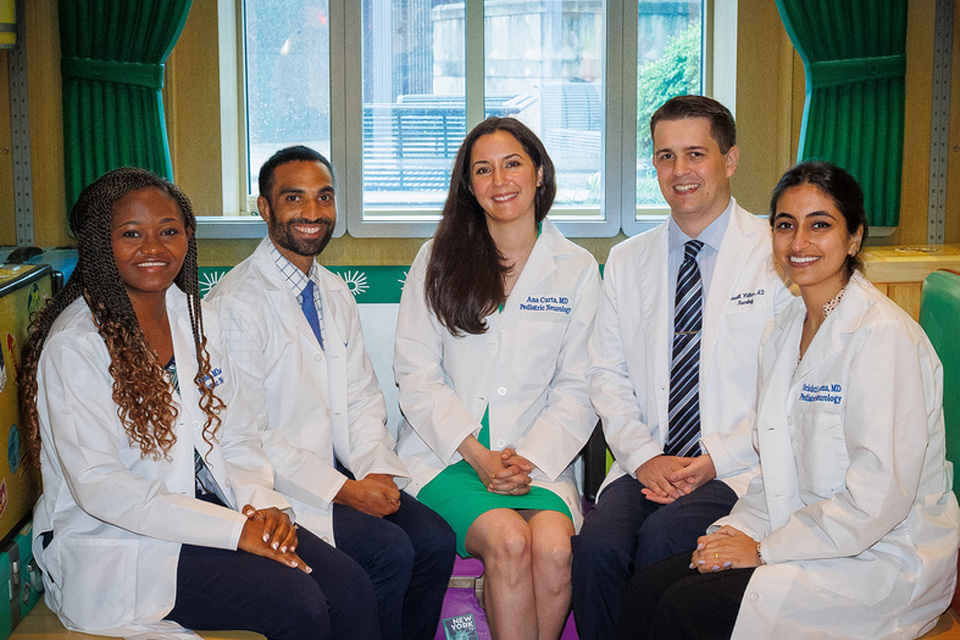Saint Louis University's Child Neurology Residency curriculum draws on educational and other guidelines developed by the professors of child neurology and the Child Neurology Society.
Rather than a statement or definition of what a child neurologist should know and do, we see it as a guide to the basic skills and knowledge that will give our graduates the ability to competently and safely practice our specialty, confident in their abilities and ready to continue the life-long learning and professional development that is the practice of child neurology. Rather than a limit, our curriculum is a foundation on which to build a career.
Throughout each academic year, residents attend numerous didactic sessions weekly that focus on basic neuroscience, translational and clinical neurology, as well as career development. Child neurology residents also attend additional weekly educational conferences within the Department of Neurology that include Department of Neurology Grand Rounds, and residents' daily didactic conferences. The Division of Child Neurology has weekly conferences focused on child neurology specialties during the weekly Journal Club and child neurology case discussion.
Formal Didactic Program
| Boot Camp | Daily sessions in July |
| Pediatric Grand Rounds | Wednesdays |
| Neurology Grand Rounds | Thursdays |
| Residents Conference | Thursdays |
| Child Neurology Journal Club | Fridays |
| Child Neurology Case Presentations | Fridays |
| Clinical Skills Assessment | Yearly |
Research and Scholarly Activity
The section of child neurology supports and encourages residents’ interest in both basic and clinical research with an infrastructure of conference and mentoring relationships as well as opportunities for collaboration with researchers in both the Department of Neurology and the Department of Pediatrics. Child neurology has active research projects in epilepsy, anti-epileptic drugs in children, headache, sleep, pain control and moya-moya disease.
Residents, guided by a faculty member, research and present short, scholarly work on interesting cases, conditions, new approaches or our institution's experience with an aspect of neurologic disease yearly. While designed to teach both scholarly skills and discipline, these presentations also teach communication skills, principles of lifelong self-directed learning and have led to publications in the medical literature.
Residents also prepare and present case studies and other brief scholarly works to their peers and fellow child neurologists at the Annual Missouri Valley Child Neurology Colloquium each year.
The program director acts as a mentor, encouraging and guiding, the residents’ development of research skills and individual projects.
